|
|
|
|
|
|
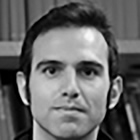 |
| KEYNOTE |
|
 |
| . |
|
|
Firat Guder
Imperial College London, UK
Keynote – Plenary Session
Dr Firat Güder is a senior lecturer (US equivalent associate professor) in the Department of Bioengineering at Imperial College London. Prior to his appointment at Imperial, he was a research fellow in the group of Prof. George M. Whitesides at Harvard University in the Department of Chemistry and Chemical Biology. He has a PhD in Microsytems Engineering (summa cum laude) from the University of Freiburg, Germany, and a BSc in Computer Engineering (First Division) from the University of New Brunswick (UNB), Canada. Firat and his team work in the interface of material science, electronics, chemistry and biology. His group focuses on the development of new materials, fabrication of low-cost sensors/actuators with the eventual aim of transforming the devices developed into fully functional portable systems for use in healthcare, agricultural and food sciences. In addition to his peer-reviewed papers, he is an inventor of multiple patents and cofounded four startups based on his own research. His research at Imperial is sponsored by the Wellcome Trust, EPSRC, BBSRC, GE Healthcare, The Royal Society, Analytical Chemistry Trust Fund, Innovate UK, EIT Health, Gates Foundation and others. For more information please visit www.guderesearch.com |
|
|
|
|
 |
| PLENARY |
|
 |
| . |
|
|
Dean Ho
NUS, Singapore
Plenary Talk
Prof. Dean Ho is Provost’s Chair Professor of Biomedical Engineering and Pharmacology, Director of the N.1 Institute for Health (N.1), Director of the Institute for Digital Medicine (WisDM), and Head of the Department of Biomedical Engineering at the National University of Singapore. N.1 and WisDM are clinical-stage institutes pioneering first-in-class interventional trial designs for oncology combination therapy, digital therapeutics, and infectious diseases, among others. Both institutes operate at the intersection of technology, clinical innovation, policy, healthcare economics, and behavioural sciences and other domains towards practice-changing advances in medicine. Prof. Ho is an elected member of the US National Academy of Inventors (NAI). He is also a Fellow of the American Institute of Medical and Biological Engineering (AIMBE). He has served as the President of the Board of Directors of the Society for Laboratory Automation and Screening (SLAS), a 26,000+ member global drug development organization comprised of senior executives from the pharmaceutical and medical device sectors, as well as academic thought leaders.
|
|
|
|
|
 |
| KEYNOTE |
|
 |
| . |
|
|
Christophe Junot
CEA, France
Keynote – Plenary Session
Christophe Junot is a doctor of Pharmacy. After having gained a PhD in Analytical Chemistry in 2000 (Pierre et Marie Curie University, Paris), he joined GlaxoSmithKline laboratories and developed experience in the field of pharmacokinetics and metabolism applied to drug discovery for 2 years. Since 2002, he works at the Life Science Division of CEA (Commissariat à l'Energie Atomique) where he develops mass spectrometry based analytical methodologies for metabolome analysis in the fields of medicine and microbiology. C. Junot has been appointed as head of the Laboratory for Drug Metabolism Studies since September 2010. He is the deputy coordinator of the French MetaboHUB infrastructure for metabolomics and fluxomics and also in charge of the coordination of analytical chemistry developments in this infrastructure.
|
|
|
|
|
 |
| KEYNOTE |
|
 |
| . |
|
|
Laura M. Lechuga
ICN2 / CSIC, Spain
Keynote – Plenary Session
Prof. Laura M. Lechuga received her PhD in chemistry from the Universidad Complutense de Madrid in 1992. From 2012 to 2015 she was an adjunct professor at the department of Physics and Technology at the Artic University of Norway (Tromsø, Norway). Since 2013 she has been a distinguished visiting professor at the School of Electrical and Computer Sciences of the Universidade Estadual de Campinas (Brazil). She has been a fellow of the Optical Society since 2014.
Prof. Lechuga is the leader of the ICN2 Nanobiosensors and Bioanalytical Applications Group. The main focus of her group lies in the technological development of nanophotonic (nanoplasmonics and silicon-based) biosensors, their integration into portable lab-on-a-chip platforms and their application in clinical and environmental diagnostcs.
She has published over 200 articles, book chapters and conference proceedings and delivered more than 350 invited presentations. She also has eight families of patents at the European, US and international levels. She was the driving force behind the founding of spin-off company SENSIA, SL in 2004 and the co-founder of BIOD, SL in 2010.
|
|
|
|
|
 |
| PLENARY |
|
 |
| . |
|
|
Chenzhong Li
Florida International University, USA
Plenary Talk
Bio: Prof. Chen-zhong Li is a professor of Biomedical Engineering and the director of Nanobioengineering/Biosensors Lab in Florida International University (FIU). Dr. Li’s research interests include biosensors, in vitro diagnosis, Point Care of Testing, neuron-device interface, cell/organ on a chip, electric therapy and electron transfer study of various biomaterials.
The impact of Dr. Li’s research has been documented in 10 granted patents, approximately 140 peer-reviewed journal papers, 2 books, 7 book chapters, over 110 keynote/invited lectures and seminars at National/International conferences and institutions. Dr. Li is the co-Editor in Chief of the flagship journal-Biosensors and Bioelectronics and associate editors of several other journals including Nature Microsystems & Nanoengineering, Research, amongst others. Additionally, he is an elected fellow of the American Institute for Medical and Biological Engineering (AIMBE) and a senior member of IEEE.
In recognition for his work, Dr. Li has received several awards and honors including the Kauffman Entrepreneurship Professor Award in 2009 and 2011, 2014 JSPS (Japan) Professor Fellowship Award, 2014 FIU Excellent Faculty Award in Research and Creative Activities, 2016 Pioneer in Technology Development Award by the Society of Braining Mapping &Therapeutics and Brain Mapping Foundations, and 2016 Minority-Serving Institution Faculty Award in Cancer Research, by the American Association for Cancer Research.
|
|
|
|
|
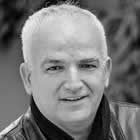 |
| KEYNOTE |
|
 |
| . |
|
|
Arben Merkoci
ICREA / ICN2, Spain
Keynote – Plenary Session
Arben Merkoçi is currently ICREA Professor and director of the Nanobioelectronics & Biosensors Group at Institut Català de Nanociencia i Nanotecnologia (ICN2), a BIST centre situated at Autonomous University of Barcelona (UAB) campus (Bellaterra, Barcelona). After his PhD (1991) at Tirana University, in the topic of Ion-Selective-Electrodes (ISEs) designs and applications in clinical and environmental analysis, Dr. Merkoçi worked as postdoc at other European research centres and USA in the field of nanobiosensors and lab-on-a-chip technologies. His postdoc periods were followed by leading positions in several laboratories: (1997-2006) at Autonomous University of Barcelona and since 2006 in ICN2.
Prof. Merkoçi research is focused on the design and application of cutting edge nanotechnology and nanoscience-based biosensors with interest for diagnostics. These nanobiosensors are based on the integration of biological molecules (DNA, antibodies, cells and enzymes) and other (bio)receptors with micro- and nanostructures and applied in diagnostics, environmental monitoring or safety and security. He has published around 300 peer review research papers, is editor of books (“Nanomaterials Based Biosensing Systems, by Wiley; “Electrochemical Sensor Analysis”, of Comprehensive Analytical Chemistry series by Elsevier etc.), book chapters and special journals issues (Lab on a Chip, Electroanalysis, Microchimica Acta) dedicated to the field of nanomaterials integration and applications in biosensors.
Prof. Merkoçi is Editor of Biosensors and Bioelectronics, the principal international journal devoted to research, design development and application of biosensors and bioelectronics, member of editorial board of Electroanalysis, Microchimica Acta and other journals.
|
|
|
|
|
 |
| INVITED |
|
 |
| . |
|
|
Lars Montelius
INL, Portugal
Invited – Plenary Session
Lars Montelius is the Director–General of the International Iberian Nanotechnology Laboratory since the 1st September 2014.
Professor in Nanotechnology at Lund University, Sweden, Lars Montelius is the founder of several Swedish companies working with nanotechnology.
Between 2003 and 2009, Lars Montelius was Dean of the Physics Department, Science and Engineering Faculties at Lund University and between 2009 and 2011, he was director for Øresund University & Øresund Science Region, a cross-border cooperation between eleven universities and three regional authorities of two countries in the Øresund Region.
Lars Montelius was also Chair of the Swedish Technical Standardization Committee on Nanotechnology from 2007 to 2014.
Prof, Dr, Dr h c Lars Montelius, with H-index 34: 298 publications, 4.091 citations, last 5 years ≈250 citations/year. Data from ISI Web of Knowledge 2016-06-19. More than 70 personally invited talks. 24 patent applications.
|
|
|
|
|
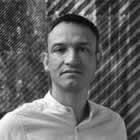 |
| INVITED |
|
 |
| . |
|
|
Jahir Orozco Holguin
Universidad de Antioquia, Colombia
Invited – Plenary Session
Jahir Orozco Holguín is Group Leader of the Max Planck Tandem Group in Nanobioengineering (MPTG-N), at the University of Antioquia, Colombia. He is a Chemist from the University of Antioquia and Ph.D. from the University of Barcelona and Institute for Microelectronics of Barcelona (Spain), 2008. He spent a year as a postdoc at the Observatoire Oceanologique de Banyuls sur Mer (Université Pierre et Marie Curie, France), training in molecular tools for pathogens monitoring and 4 years as a postdoc at the Department of Nanoengineering in UCSD (USA) developing nanomotors for biomedical and environmental applications. After being a Severo Ochoa Excellence Fellow at the Catalan Institute for Nanoscience and Nanotechnology for 1.5 years, he started the MPTG-N, at the University of Antioquia. His areas of interest include nanobiotechnology, nanomotors, nanocarriers, electrochemistry, chemical (bio)sensors, nano(micro)devices, and development of analytical tools for environmental and clinical applications.
|
|
|
|
|
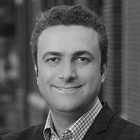 |
| PLENARY |
|
 |
| . |
|
|
Aydogan Ozcan
UCLA, USA
Plenary Talk
Dr. Aydogan Ozcan is the Chancellor’s Professor and the Volgenau Chair for Engineering Innovation at UCLA and an HHMI Professor with the Howard Hughes Medical Institute, leading the Bio- and Nano-Photonics Laboratory at UCLA School of Engineering and is also the Associate Director of the California NanoSystems Institute. Dr. Ozcan is elected Fellow of the National Academy of Inventors (NAI) and holds 41 issued patents and >20 pending patent applications and is also the author of one book and the co-author of >700 peer-reviewed publications in major scientific journals and conferences. Dr. Ozcan is the founder and a member of the Board of Directors of Lucendi Inc., Hana Diagnostics, Pictor Labs, as well as Holomic/Cellmic LLC, which was named a Technology Pioneer by The World Economic Forum in 2015. Dr. Ozcan is also a Fellow of the American Association for the Advancement of Science (AAAS), the International Photonics Society (SPIE), the Optical Society of America (OSA), the American Institute for Medical and Biological Engineering (AIMBE), the Institute of Electrical and Electronics Engineers (IEEE), the Royal Society of Chemistry (RSC), the American Physical Society (APS) and the Guggenheim Foundation, and has received major awards including the Presidential Early Career Award for Scientists and Engineers, International Commission for Optics Prize, Biophotonics Technology Innovator Award, Rahmi M. Koc Science Medal, International Photonics Society Early Career Achievement Award, Army Young Investigator Award, NSF CAREER Award, NIH Director’s New Innovator Award, Navy Young Investigator Award, IEEE Photonics Society Young Investigator Award and Distinguished Lecturer Award, National Geographic Emerging Explorer Award, National Academy of Engineering The Grainger Foundation Frontiers of Engineering Award and MIT’s TR35 Award for his seminal contributions to computational imaging, sensing and diagnostics.
http://innovate.ee.ucla.edu/welcome.html
http://org.ee.ucla.edu/ |
|
|
|
|
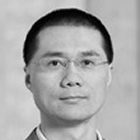 |
| KEYNOTE |
|
 |
| . |
|
|
Jing Wang
ETH Zürich, Switzerland
Keynote – Plenary Session
Jing Wang is an associate professor in the Institute of Environmental Engineering at ETH Zurich (Swiss Federal Institute of Technology Zurich), leading the group of Air Quality and Particle Technology. He is also a group leader at Empa (Swiss Federal Laboratories for Materials Science and Technology). Jing Wang obtained his PhD degree from the Department of Aerospace Engineering, University of Minnesota in 2005. He received the 'Best Dissertation' Award in Physical Sciences and Engineering, University of Minnesota in 2006 and the Smoluchowski award conferred by the Association for Aerosol Research (Gesellschaft für Aerosolforschung, GAeF) in recognition of his contribution to the field of “Environmental, Health and Safety Impact of Nanomaterials” in 2011. He was one of the keynote speakers in the International Aerosol Conference 2014 and AsianNANO2018. His main research interests are air quality, environmental and health impact of airborne pollutants, airborne nanoparticle measurement and emission control, air and water filtration. He is currently an editor for Aerosol Science and Technology.
|
|
|
|
|
| |
|
|
|
|
|
|
|
© Phantoms Foundation 2020 |
|
|
|